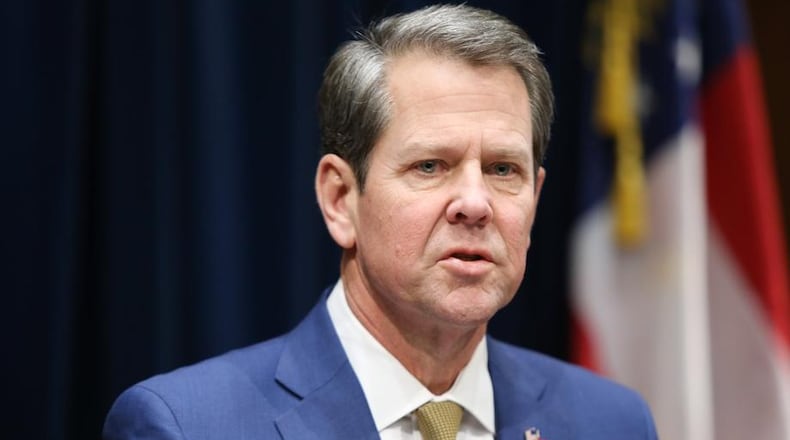Georgia lawmakers who began a week of reviewing budget cuts Monday got some good news when the governor’s office announced that state tax collections jumped 4.5% in January.
That comes after sluggish, up-and-down revenue numbers in 2019 helped persuade Gov. Brian Kemp to require many agencies to cut their spending $200 million this year and $300 million next year.
Those are the cuts, possibly impacting everything from mental health services to juvenile prison staffing, that state lawmakers are holding meetings on this week.
Collections of individual income taxes were up 4.3% over January 2019, and the net sales tax take was up 4.6%.
The state gets most of its money from income and sales taxes.
The increases in January — the seventh month of fiscal 2020 — put the state up $133 million over the same period last year.
That’s not enough to avoid the proposed cuts, but if the trend continues through June 30 — the end of the fiscal year — it could mitigate the state’s financial problems. Tax collections were up 3% in December, so January marked the state’s second consecutive month in the black.
The good financial news also doesn’t means Kemp will raise the current revenue estimate — the amount of money lawmakers are allowed to spend. By Georgia law, governors have sole authority to decide that.
“After seeing state revenues grow by only 0.9% for the first seven months of this fiscal year, we are entering the crucial tax filing season where the state’s financial fortunes can change very rapidly,” said Jeffrey Dorfman, the state’s fiscal economist and a University of Georgia professor.
He said the state would need to see continued revenue growth to avoid further budget cuts.
“We do see signs of improvement in Georgia’s economy since a mid-2019 slowdown, but it is too early to have enough confidence in that trend to raise the revenue estimate and increase state spending beyond the governor’s proposals,” he added.
Kemp ordered the spending cuts in August to both hedge against an economic downturn and pay for his priorities, including another big pay raise for teachers, which he recommended to lawmakers last month.
Revenue growth has been slow — despite a fairly strong economy — for more than a year. Some lawmakers point to the General Assembly's election-year decision in 2018 to cut the top state income tax rate and double the standard deduction Georgians can take when doing their taxes.
About the Author
Keep Reading
The Latest
Featured




